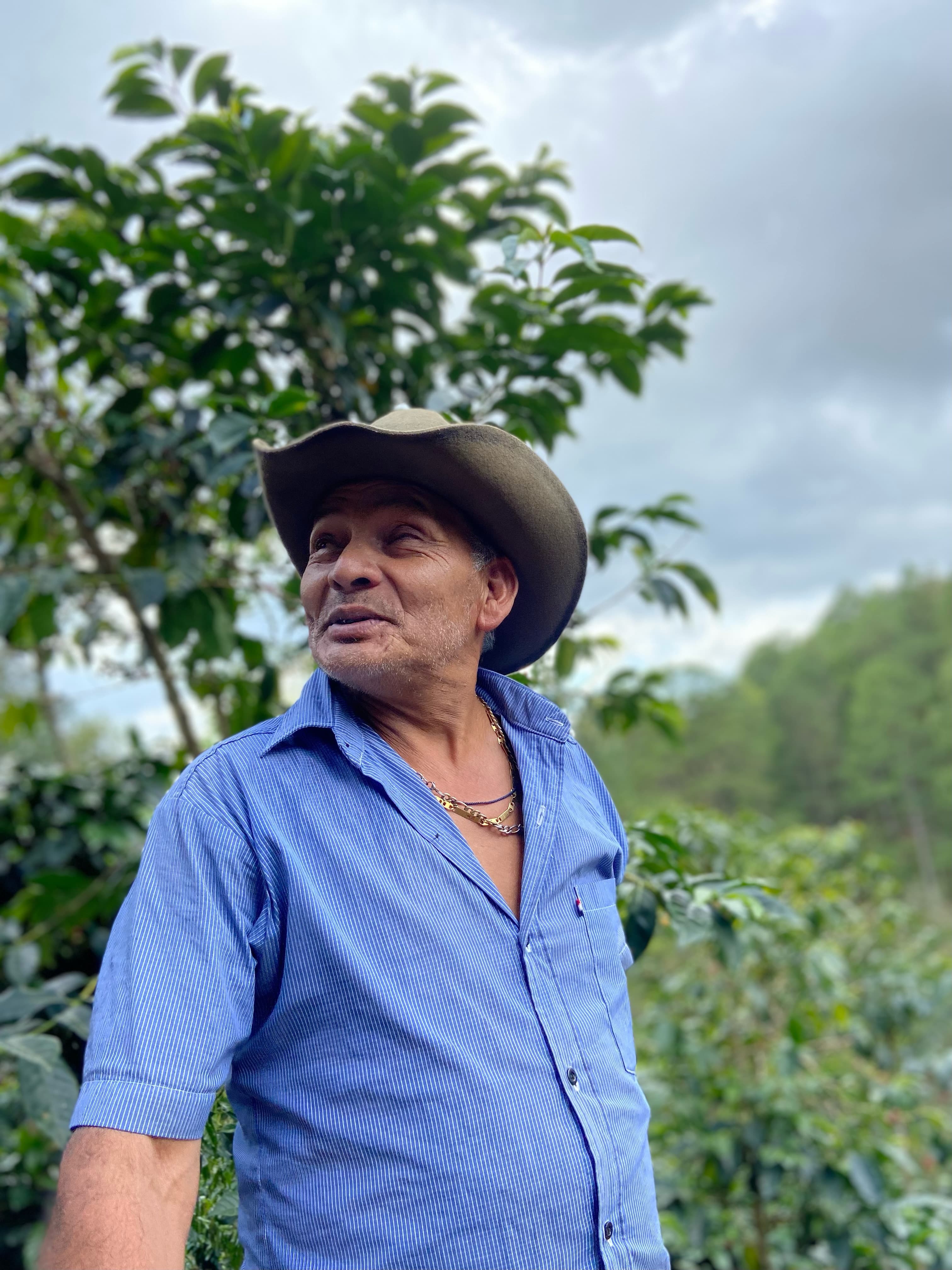It starts with a seed


Montecillos
Honduras
Despite their status as the 4th largest exporter of coffee in the world, Honduras tends to fly under the radar in specialty. From our perspective, however, the opportunities to write new realities via coffee are perhaps nowhere larger in the Americas than this tiny country. Our work here has been focused on a series of smallholder grower communities around the Montecillos mountain range, straddling the border of La Paz and Comayagua departments. Here, we've worked alongside generational smallholders as they've transitioned into specialty processing after decades of selling their coffee in cherry to the local market. The results have been remarkable.
History Doesn't Happen, It Is Made
The story of Semilla’s work in Honduras begins with Antonio Ramirez. Born in Selguapa in 1950, he is the literal father of coffee in this region. At the time of his birth, Selguapa (1800 metres above sea level) was nothing more than a few casitas lodged in the steep, verdant ledges of the mountains of Comayagua. The principal economy for the majority of the late 20th century was beans and corn, and the population was incredibly isolated, having to venture on foot or on muleback to the nearest cities of La Paz or Comayagua. 30 years ago, Antonio became one of the very first to commercially grow coffee in the area when he took over some abandoned land. There, sprinkled throughout the hills, were coffee plants - Pacas, Typica, and Bourbon. Finding the Pacas struggling in the frigid nights, he removed this variety and dedicated himself to the Typica and Bourbon. Like many Typica plants in Central and South America, the origin of these seeds is unknown but they retain a character that is deeply unique: bright, clean and fruited, reminiscent of African coffees moreso than the common perception of Central American coffees.
Antonio is now 70 years old and Selguapa has grown to count over 1500 inhabitants, 800 of which are coffee producers. The Selguapa group who is now selling for improved prices to the specialty market accounts for only 40 of these 800 producers, meaning that only 3 percent of the all producers in this area are receiving sustainable prices for their coffee. The others continue to sell in cherry, unconvinced that there is a better market out there, or daunted by the challenge and investment of setting up their own beneficio to process their coffees to parchment.
This is then the importance of our work here -- not only to support the work of these 25 producers working in specialty now, but to show their neighbours and friends that their work is being recognized and valued. Of the 40 currently working specialty, they produce about 600 bags annually. We can make an extrapolated estimate then that there is roughly 13 thousand bags of coffee that is likely of exceptional quality simply due to its genetics and altitude available in this community alone.
Turning the Tide - Emigration and Production
In a time where we are discussing the increasing demand for Arabica and a production decline, investment in communities like these can be part of the answer. As our work together has grown, those within the community are seeing a reality they didn't believe in only a few years ago -- namely, staying home. While everyone in Selguapa can claim to have themselves migrated or have a family member who has, now that coffee is becoming a viable option we rarely hear of producers leaving in search of a better life.
While Selguapa was the first community Semilla worked with, we have now grown our purchasing to include the neighbouring communities of Chaguite, Guaspololo, and Bañaderos. Of these four, Selguapa was the first to enter into specialty production, and we've been the first buyer for many of the producers in these other communities.
While each of them has their own story, the similarities are deep. All previously had no channel for sale outside of selling in cherry to local intermediaries for whatever price was offered. Our goal here is to not only pay the best possible prices, but to engage in a way the encourages producers to learn more about all aspects of production, sale and export of their coffee.
In many ways, Honduras is a striking example of the near-future of Arabica coffee production. Climate change has led to the rampant proliferation of coffee leaf rust, decimating up to 25% of the country's total production, and brought intense rains and cold fronts that make high altitude production increasingly difficult. With domestic support for the smallholder class nearly non-existent, we are commited to working alongside these producers in the creation of a new system that priortizes their needs and generates real opportunities.

